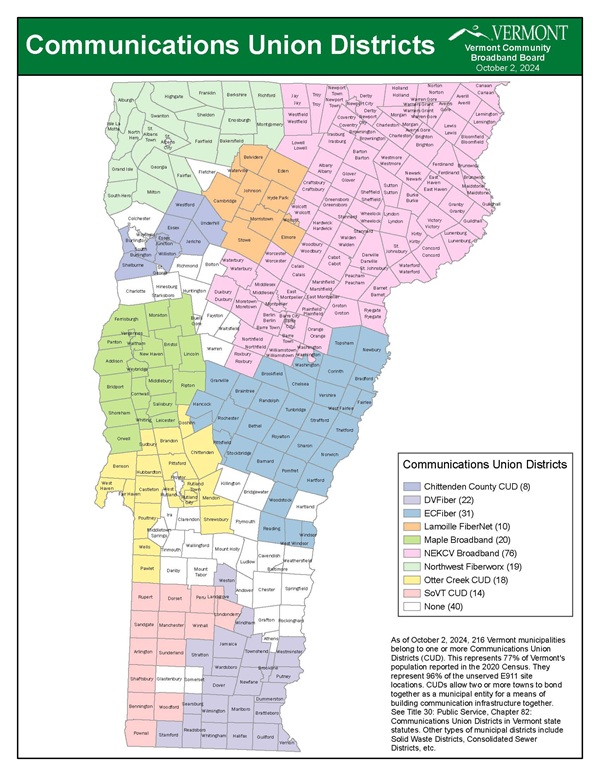
U.S. Senators Peter Welch (D-Vt.) and Roger Marshall (R-Kan.) have introduced a bill that would not only reauthorize the USDA’s ReConnect Loan and Grant program.
As part of the reauthorization, the proposed legislation aims to improve and expand the program so that Communications Union Districts (CUDs) would be eligible for federal broadband subsidies.
According to the announcement, the reauthorization would set a baseline of symmetrical 100 megabits per second (Mbps) connections for broadband grants, up from the program’s dated current standard of 25/3 Mbps.
The bill also clarifies that the USDA can make grants, loans, or grant-loan combinations under ReConnect, and claims to “improve coordination and communication among stakeholders at the federal level.”
“The last few years have shown all of us how important high-speed broadband is to our communities. From online school and remote work to telemedicine, a good connection is essential,” Senator Welch said of the reauthorization.
“Many rural communities don’t have access to broadband at all, let alone the higher speeds needed to participate in today’s digital economy.”
The duo are quick to point out that over a third of Americans lack access to one or no broadband provider, and more than 45 million Americans lack fixed terrestrial 100 megabit per second (Mbps) downstream broadband, the Federal Communications Commission’s (FCC) minimum standard for broadband access.

The bill also makes it a priority to expand potential grant awards to include Communications Union Districts (CUDs), defined as a new municipal entity created by two or more towns with a goal of collaboratively building communication infrastructure.
CUDs have proven increasingly popular and effective in states like Vermont, because they let several municipalities join forces on broadband deployment projects that individual communities might not be able to handle, either financially or logistically.
In Vermont, municipally-led CUDs can legally fund needed broadband expansions through debt, grants, and donations – but not taxes, though they themselves are tax-exempt nonprofits. The efforts have been at the forefront of extending affordable fiber access to long-neglected rural communities that have in many cases never seen modern broadband connectivity.
“Just as the great Kansan President Eisenhower understood the importance of investing in our nation’s highways in the 1950s, we must invest in the critical highway of our time: reliable, high-speed internet,” Senator Marshall said of the bill. “Broadband isn’t a luxury – it’s essential for our way of life. From family farms to schools to small businesses, rural communities depend on connectivity now more than ever.”
Congress set aside $90 million in funding for ReConnect during 2025. A recently proposed bill to re-open the government would set aside $109 million for rural broadband programs coordinated through the USDA, with $50.7 million set aside specifically for rural broadband expansion.
That different funding reauthorization, which has to be reconciled between House and Senate versions, would pre-empt Welch and Marshall’s bill, maintain the dated 25/3 Mbps speed definition, and would not expand grant funding to CUDs.
Read our in-depth report on Vermont's CUDs – Neighborly Networks: Vermont's Approach to Community Broadbandand – and how they are transforming the state's digital landscape here.







